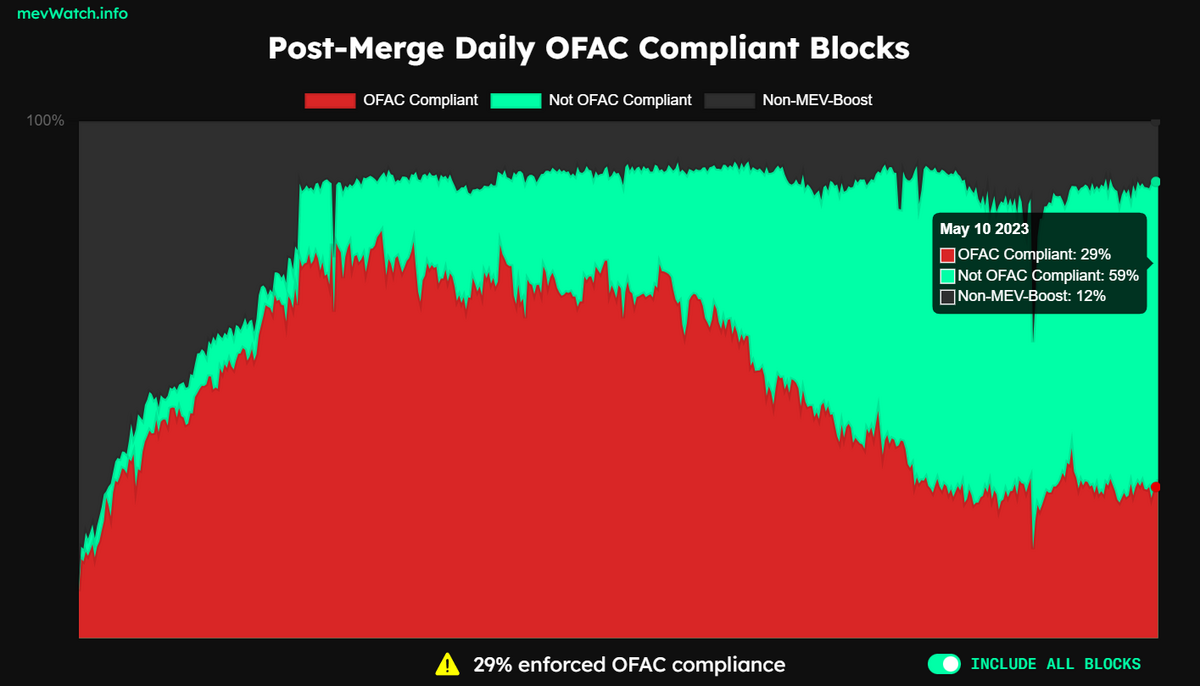
- Only 29% of all blocks on Ethereum are being censored due to OFAC sanctions.
- The percentage of OFAC-compliant blocks was much higher in 2022.
- OFAC-compliant blocks can always increase.
Ethereum is the most widely-used blockchain in the crypto industry. It’s so popular that there are even blocks that are supposed to be censored due to regulations.
However, Ethereum is known for being censorship-resistant. And on Wednesday, it proved to be just that.
Ethereum’s OFAC-Compliant Blocks Drop to 29%
Ethereum has just become more censorship-resistant. On Thursday, Ethereum’s OFAC-compliant blocks dropped to just 29%.

OFAC stands for Office for Foreign Assets Control, an agency of the U.S. Department of the Treasury that administers and enforces economic and trade sanctions to support national security and foreign policy objectives.
Sponsored
In August 2022, the OFAC imposed sanctions on Tornado Cash, a decentralized crypto mixer on the Ethereum blockchain, and several associated Ethereum addresses. The OFAC said Tornado Cash facilitated illegal and criminal money transfers and implemented measures to censor specific transactions.
In response to the OFAC sanctions, some relay operators, the most famous of them being Flashbots, started filtering transactions that were not compliant with the OFAC sanctions. Initially, around 80% of all transactions on Ethereum were OFAC-compliant.
Sponsored
However, that number has since gone down drastically. According to data from mevwatch.info, only 29% of all transactions on the Ethereum network are currently OFAC-compliant. This means that Ethereum has maintained its censorship-resistance property.
On the Flipside
- Relayers can start blocking transactions that aren’t OFAC-compliant anytime if there are attractive maximal extractable value (MEV) opportunities.
Why You Should Care
Being censorship-resistant is one of the most important properties of a blockchain. The fact that Ethereum has maintained this property over the years speaks volumes about its resilience and importance in the blockchain world.
Read more about Lido enabling stETH withdrawals:
Lido Finally Sets Date for stETH Withdrawals
Read more about how Polygon is driving institutional adoption of DeFi:
Here’s How Polygon Is Driving Institutional Adoption of DeFi
